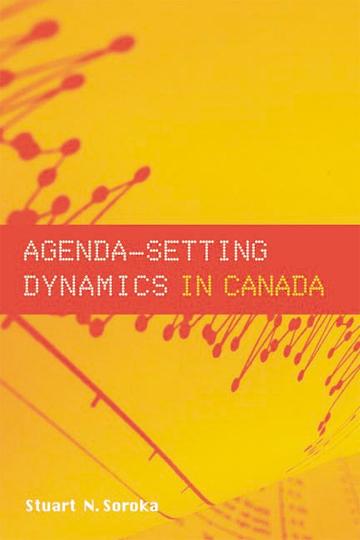Why do public issues like the environment rise and fall in importance over time? To what extent can the trends in salience be explained by real-world factors? To what degree are they the product of interactions between media content, public opinion, and policymaking? This book surveys the development of eight issues in Canada over a decade -- AIDS, crime, the debt/deficit, the environment, inflation, national unity, taxes, and unemployment -- to explore how the salience of issues changes over time, and to examine why these changes are important to our understanding of everyday politics. Agenda-Setting Dynamics in Canada offers one of the first empirical analyses of the interaction of the media, the public, and policymakers in Canada and, more generally, makes an important contribution to the study of political communications and policymaking well beyond the Canadian context.
Stuart Soroka is assistant professor of political science at McGill University.
Soroka has produced by far the most detailed and sophisticated study to date of Canadian agenda setting ... his clear and concise discussion of the problematics and methods of studying agenda-setting has provided a significant contribution to the literature on the subject.
In the vast literature on agenda setting, this book is destined to become one of the top five publications. It will be a "must read" for anyone involved in this line of research, or for general readers interested in the formation of public opinion and public policy.
[T]his concise and well-written book could certainly prove useful to scholars interested in agenda-setting, public opinion and policy studies ... this book may convince even the most skeptical students of politics to take agenda-setting seriously. Rating: *****
Soroka has produced by far the most detailed and sophisticated study to date of Canadian agenda setting… his clear and concise discussion of the problematics and methods of studying agenda-setting has provided a significant contribution to the literature on the subject.



